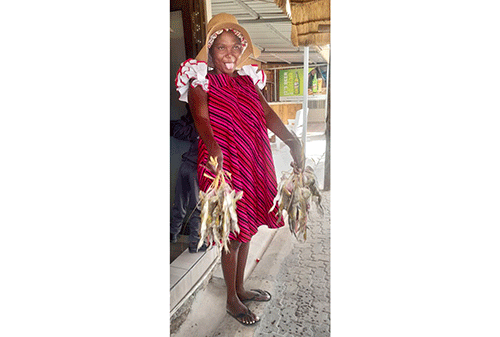The heavy rains experienced over the last few weeks heralded in frog season for residents of Namibia’s northern regions, where the amphibians are considered a delicacy.
Simaneka Shikoyeni from Okongo village in the Ohangwena region said it is that time when villagers don’t worry too much about what to prepare for dinner.
“Although frogs are considered traditional food by most of the northern people, there are people who refuse to even touch, let alone taste a frog, mostly due to its dreadful appearance. But for me, I will take revenge if you eat them alone,” she whistled. Shikoyeni told New Era that pans in their village are full of people catching frogs, some with the intention to go and sell.
“I have a pond behind our house where I keep frogs and fish, and later cook them during summer. The way I love frogs, no one will understand. I even froze them so that they wouldn’t get rotten,” she noted.
Martin Shikulo, who is unemployed, was found selling frogs alongside the road in Ompundja village, saying the amphibians are now his source of income.
He indicated that he makes up to N$350 or more on a good day selling frogs. A bunch of five frogs costs N$30.
“I walked away with N$370 yesterday. The price was so good and the demand was very high. At the end of the day, nothing was left for my own consumption. But today, I caught enough frogs for selling and some more for my own consumption,” he added.
Saimi Shikulo from Oponona says she prefers cooking the frogs the traditional way, outside, using firewood instead of a gas stove.
“Frogs have to be well-cooked. If not, you will regret eating them,” she smiled.
Explaining how to cook the delicacy, she said you first remove the intestines and put the frogs in a pot before adding water and salt.
“We all cook them in different ways; as long as you have enough ingredients to add to the taste! Delicious,” she beamed.
Shikulo said frogs spend the dry season lying deep under the soil, waiting for the rainy season, when they would re-emerge to feed and to mate.
“We wait until we hear them croaking; that’s how we know they are ready to be caught,” she added.
– vkaapanda@nepc.com.na


